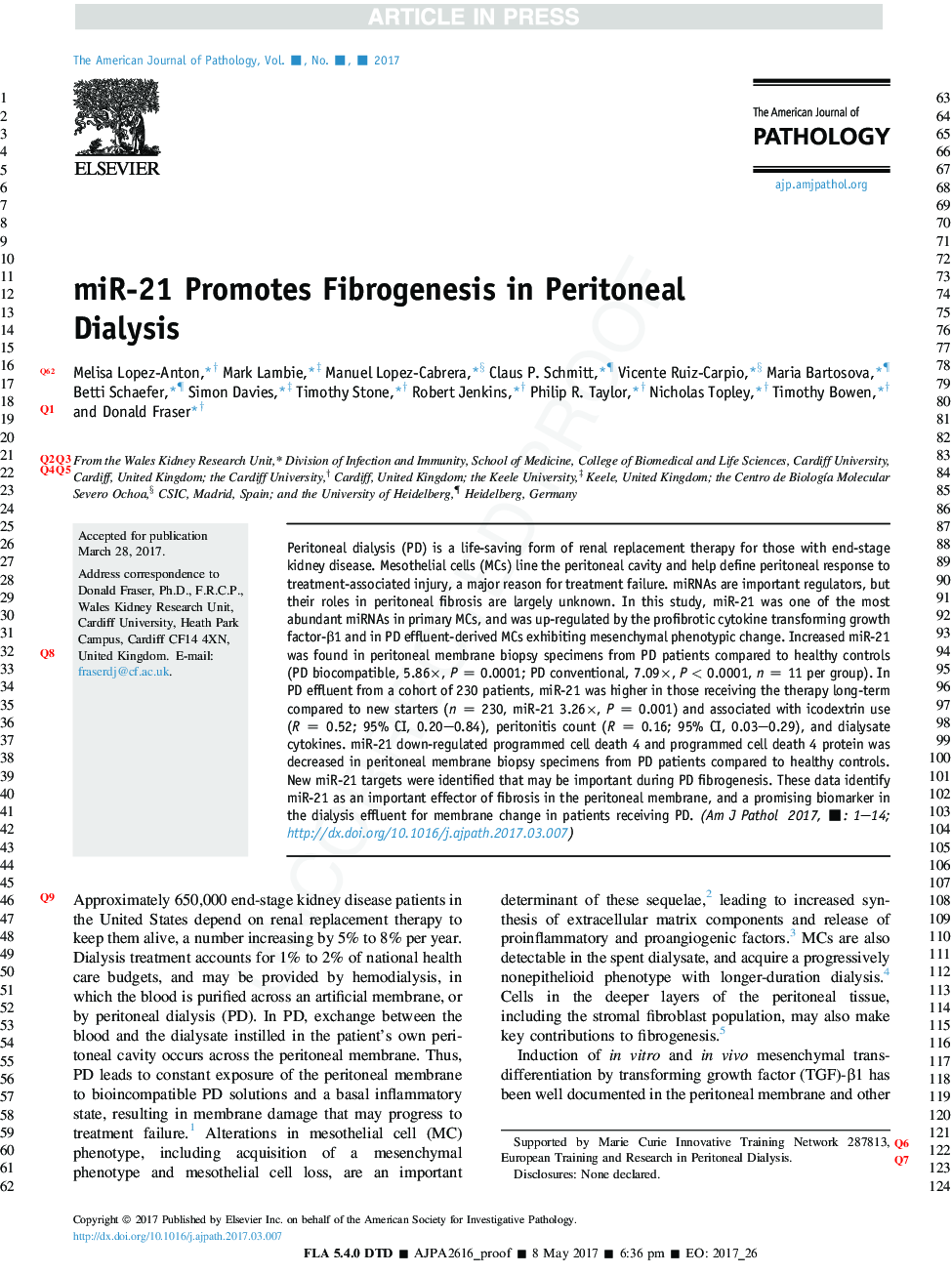| Article ID | Journal | Published Year | Pages | File Type |
|---|---|---|---|---|
| 5595977 | The American Journal of Pathology | 2017 | 15 Pages |
Abstract
Peritoneal dialysis (PD) is a life-saving form of renal replacement therapy for those with end-stage kidney disease. Mesothelial cells (MCs) line the peritoneal cavity and help define peritoneal response to treatment-associated injury, a major reason for treatment failure. miRNAs are important regulators, but their roles in peritoneal fibrosis are largely unknown. In this study, miR-21 was one of the most abundant miRNAs in primary MCs, and was up-regulated by the profibrotic cytokine transforming growth factor-β1 and in PD effluent-derived MCs exhibiting mesenchymal phenotypic change. Increased miR-21 was found in peritoneal membrane biopsy specimens from PD patients compared to healthy controls (PD biocompatible, 5.86Ã, P = 0.0001; PD conventional, 7.09Ã, P < 0.0001, n = 11 per group). In PD effluent from a cohort of 230 patients, miR-21 was higher in those receiving the therapy long-term compared to new starters (n = 230, miR-21 3.26Ã, P = 0.001) and associated with icodextrin use (R = 0.52; 95% CI, 0.20-0.84), peritonitis count (R = 0.16; 95% CI, 0.03-0.29), and dialysate cytokines. miR-21 down-regulated programmed cell death 4 and programmed cell death 4 protein was decreased in peritoneal membrane biopsy specimens from PD patients compared to healthy controls. New miR-21 targets were identified that may be important during PD fibrogenesis. These data identify miR-21 as an important effector of fibrosis in the peritoneal membrane, and a promising biomarker in the dialysis effluent for membrane change in patients receiving PD.
Related Topics
Health Sciences
Medicine and Dentistry
Cardiology and Cardiovascular Medicine
Authors
Melisa Lopez-Anton, Mark Lambie, Manuel Lopez-Cabrera, Claus P. Schmitt, Vicente Ruiz-Carpio, Maria Bartosova, Betti Schaefer, Simon Davies, Timothy Stone, Robert Jenkins, Philip R. Taylor, Nicholas Topley, Timothy Bowen, Donald Fraser,
